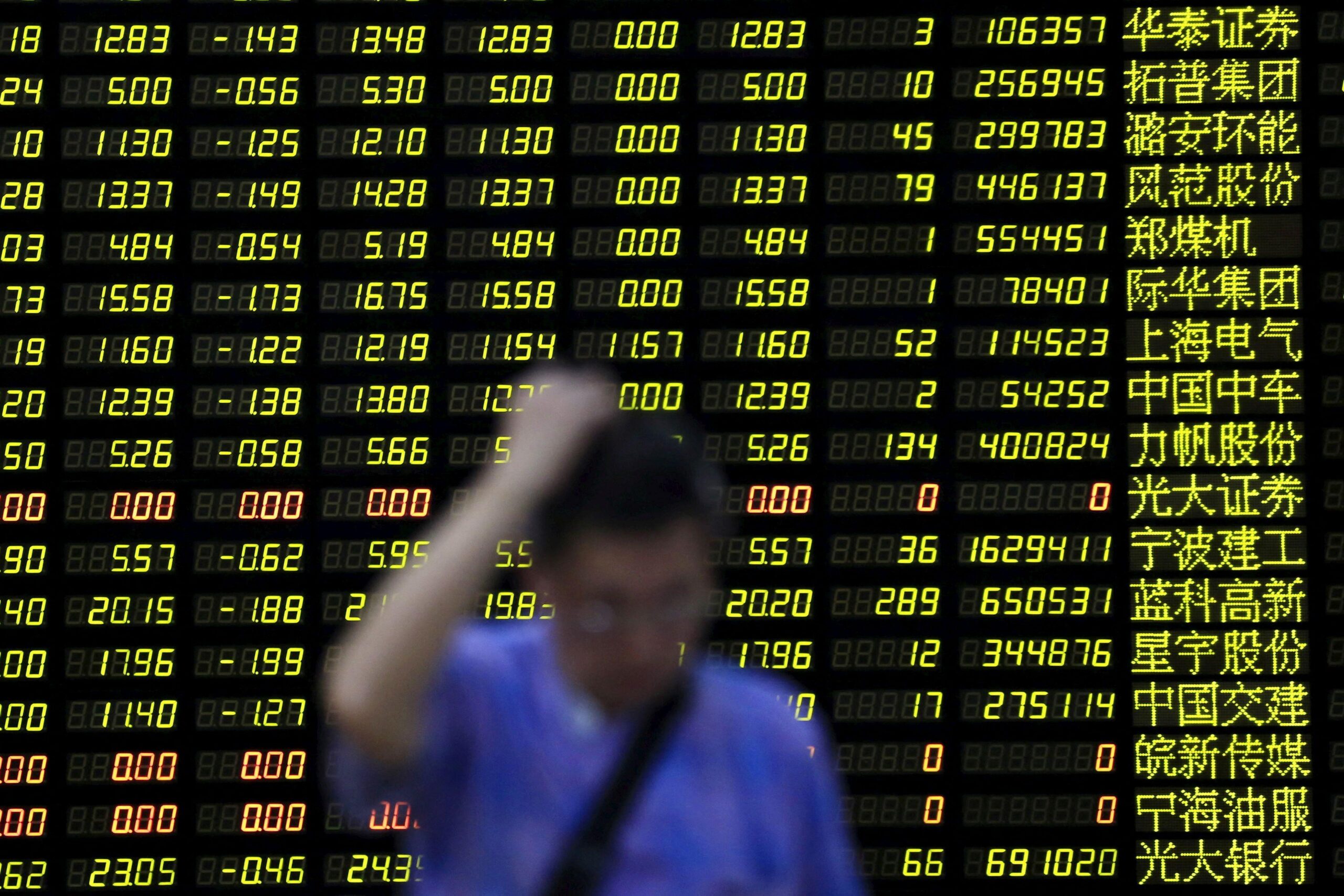ASIAN markets fluctuated on Thursday as investors tried to assess US President Donald Trump’s latest tariffs salvo, while earnings from chip titan Nvidia failed to impress, despite another record performance.
Hong Kong was again the region’s standout performer as the Hang Seng Index chalked up a 20 per cent year-to-date gain – pushing it above 24,000 points for the first time since 2022 – thanks to another outstanding performance by Chinese tech giants.
However, traders soon took their cash off the table and left the HSI swinging in and out of positive territory, similar to scenes elsewhere in Asia.
The uneven start to the day came after Trump warned he would hit the European Union with 25 per cent tariffs.
However, he caused some confusion over the timing and extent of other measures announced against Canada and Mexico, with analysts saying there was still some debate on whether he will delay implementation or water down his plans.
The threat against Brussels comes after the US president went back on the offensive over trade and signed a memo at the weekend calling for curbs on Chinese investments in industries including technology and critical infrastructure, healthcare and energy.
BT in your inbox

Start and end each day with the latest news stories and analyses delivered straight to your inbox.
Still, economists at Schroders said they were optimistic that the White House’s economic policies will be milder than Trump had espoused when running for president.
“Our ‘Aggressive Trump’ scenario, that assumes high trade tariffs and large deportations, would be stagflationary for the US economy and probably tip the rest of the world into recession,” they said in a note.
“But upside risks are also emerging. DeepSeek could speed up the adoption of AI, macroeconomic reform has come back onto the agenda for governments desperate to find growth and bank lending shows signs of life,” they added, referring to the Chinese startup that upended the AI universe with its chatbot last month.
“Steep falls in oil prices could also conceivably relieve inflation pressures later in 2025.”
Asia started the day on a mixed note.
Hong Kong retreated as investors took a breather following a thundering start to the year, while there were also losses in Shanghai, Singapore, Seoul, Taipei and Jakarta.
Tokyo rose, though 7-Eleven owner Seven & i tumbled as much as 12 per cent after the convenience store giant said its founding family failed to put together a white-knight buyout.
The firm last year rejected an offer worth nearly US$40 billion from Canadian rival Alimentation Couche-Tard (ACT) which would have been the biggest foreign buyout of a Japanese firm.
Sydney, Wellington and Manila also rose.
There was little spark from Nvidia’s earnings, despite the firm reporting a record US$39.3 billion in revenue in the fourth quarter and CEO Jensen Huang touting “amazing” interest in its latest Blackwell chip technology.
Traders are gearing up for a key meeting of Chinese leaders next week, when they are expected to hammer out their annual economic plan amid expectations they will again target five per cent growth this year, the same as 2024.
“Policymakers tend to attach high importance to accomplishing this goal, and since targets were started in 1990, growth has only fallen notably short of target twice, in 1990 and 2022,” said Lynn Song, chief China economist at ING.
“The strength of fiscal and monetary support tends to align with the year’s growth target, so a stronger target implies we will also see stronger stimulus measures and vice versa.” AFP
















